Improvement of maintenance manner for existing structures and application of highly-durable materials to newly-built structures are required to achieve the long service life of infrastructure. Advanced technology contributed to infrastructure design and maintenance is studied in our laboratory. Research topics are as follows;
- Nondestructive inspections and monitoring technology
- Repair and reinforcement of structural members (e.g. Fiber reinforced concrete)
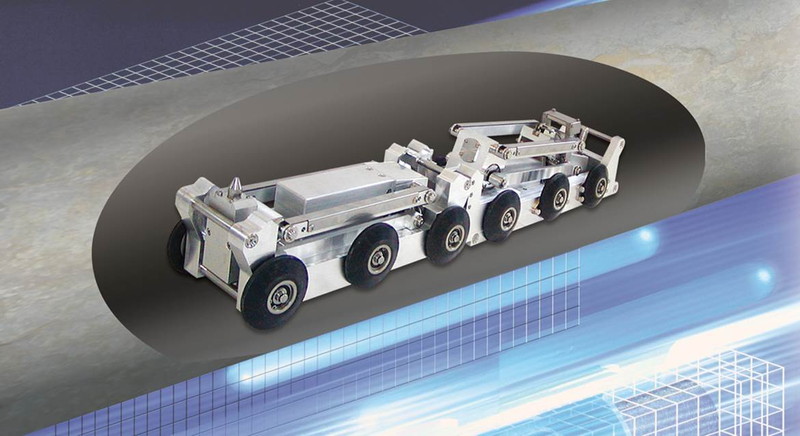
The Laboratory of Structural Engineering strongly contributes to the development of structural design codes and bridge constructions based on an original elasto-plastic finite displacement analysis method and precise experiments. Moreover, in collaboration with governments, design offices and fabricators, promotion of advanced technology for long life span and rehabilitation of metropolitan infrastructures, and improvement of structural performances are current topics of the laboratory.
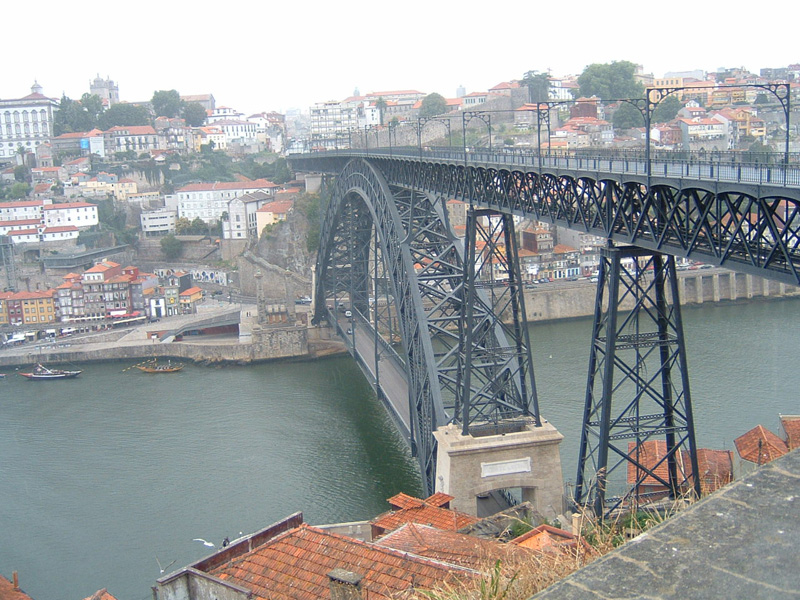
Soil and ground play vital roles in infrastructure development, water resources and its circulation, ecosystems, disposal of waste, and supply of energy resources. To realize sustainable utilization of the geo-environment, we conduct research and technical development related to soil and rock mass aimed at construction and maintenance of earthen structures that are stable against heavy rainfall and earthquake, beneficial use of waste/recycled materials, waste containment, remediation of contaminated site, geological repository of high-level radioactive waste, and development of geothermal reservoir.
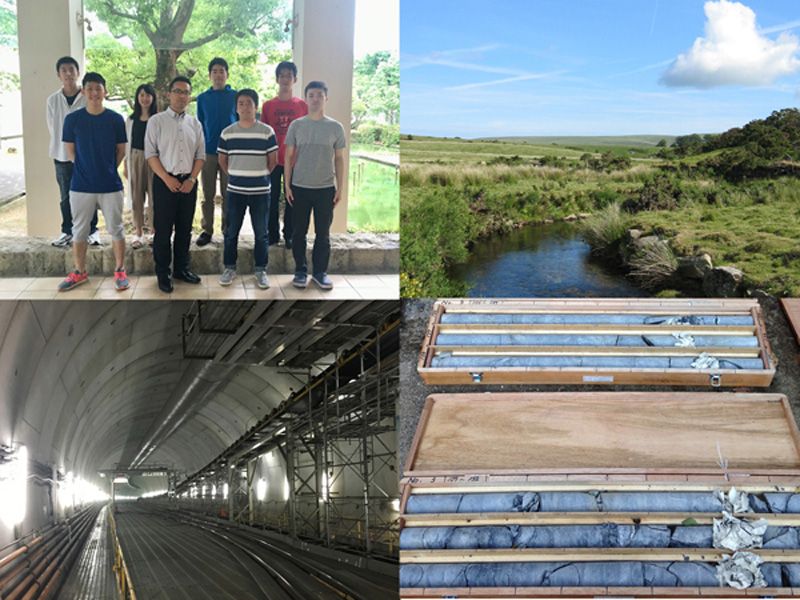
Land Development and Management Engineering Subarea is commonly called as Coastal Engineering Laboratory. Aiming at harmonization of development and environmental conservation, we are tackling various coastal problems such as coastal protection against beach erosion, tsunami and storm surge, optimal design of port facilities, preservation of shallow waters, coastal dunes, etc. through field observation, model experiments, and computer simulations.
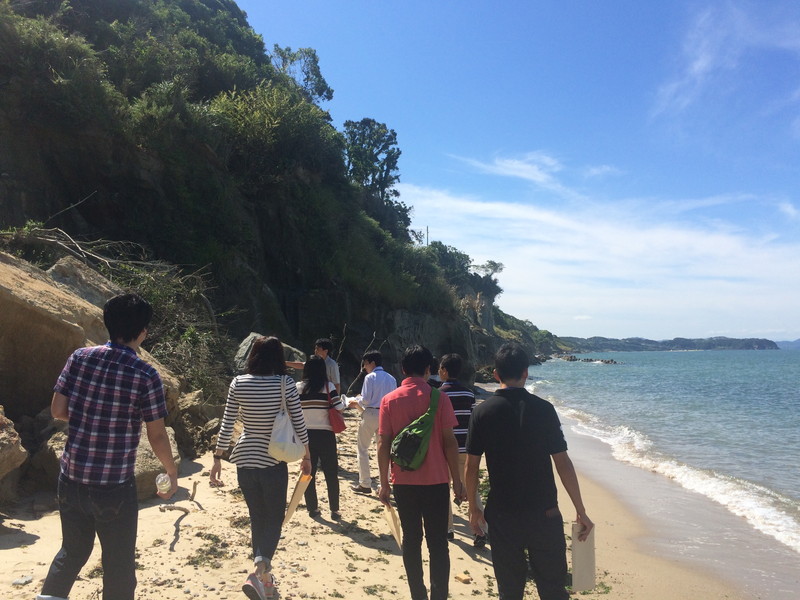
This laboratory is dedicated to wide range of research on hydraulics and water environment. Our researches have centered on computational fluid dynamics and environmental analysis by field observation. Currently, our primary interest is to analyze and simulate bio-geochemical processes and nutrient cycles in urban tidal rivers, estuaries, coastal seas, lakes and watersheds.
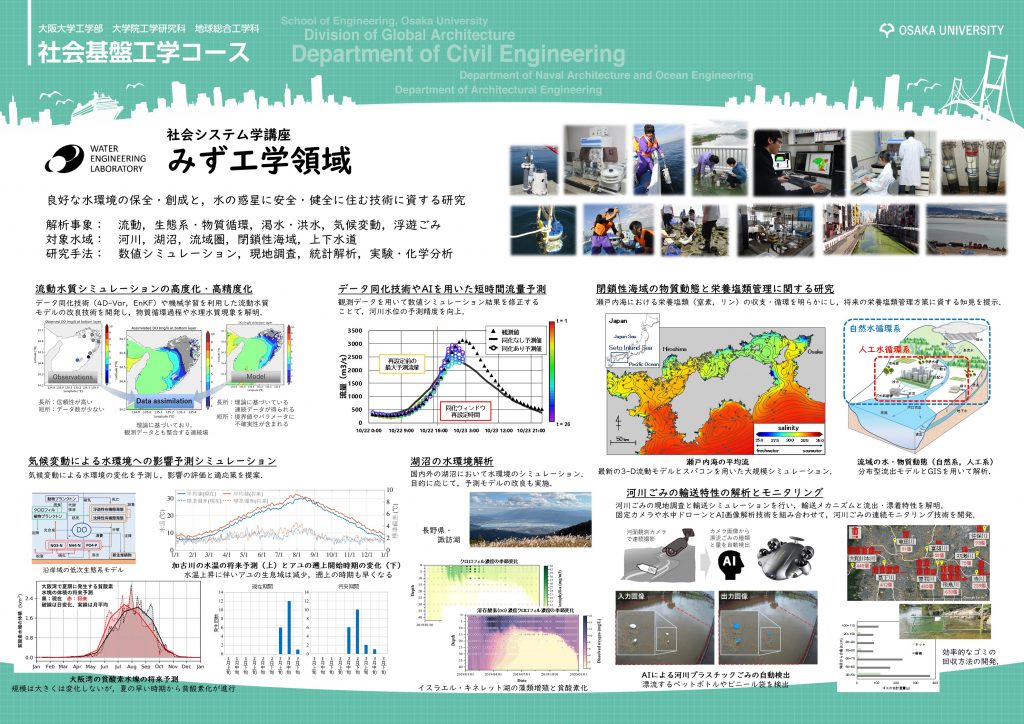
Transportation and Spatial Planning Subarea
We have been investigating integrated transportation systems and community building suitable for a future society.
1.Visioning sustainable transport, by evaluating effect of assist-system for sustainability of urban transport and transportation planning system with on slow mobility
2.Solving traffic congestion and accidents on a highway , by analysis of the cause which traffic congestion using a driving simulator
3.Ensuring Mobility in Daily Living by Local public transport collaborated with the resident and Special transport service for impaired and elderly people.
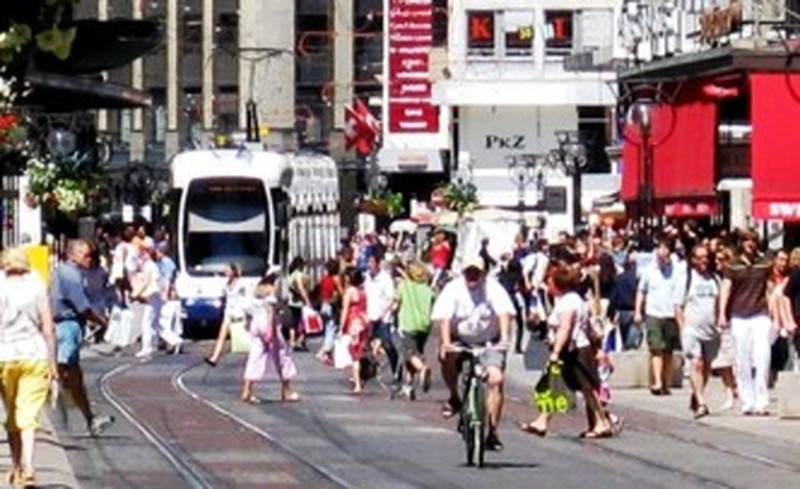
Today, a half-century subsequent to the era of accelerated economic growth—when civil infrastructure was robustly developed—Japan faces emerging challenges, such as the ageing of civil infrastructure and potential natural disasters. Within this sphere, our focus lies in addressing the managerial problem of effectively operating and maintaining the existing civil infrastructure to mitigate these issues. Our approach is characterized by two primary research themes. The first theme addresses the engineering predicament of predicting civil infrastructure deterioration, for which we are developing predictive models using data science, encompassing mathematical statistics and the principles of artificial intelligence. The second theme pertains to the economic challenge of optimal budget allocation under constraints, tackled through the application of econometrics to resolve this optimization issue.
In recent years, we have also begun to explore broader research like Digital Transformation (DX) technology—integrating data across multiple fields to augment decision-making processes—and Evidence-Based Policy Making (EBPM), which is used to devise management strategies grounded in scientific evidence.

Top